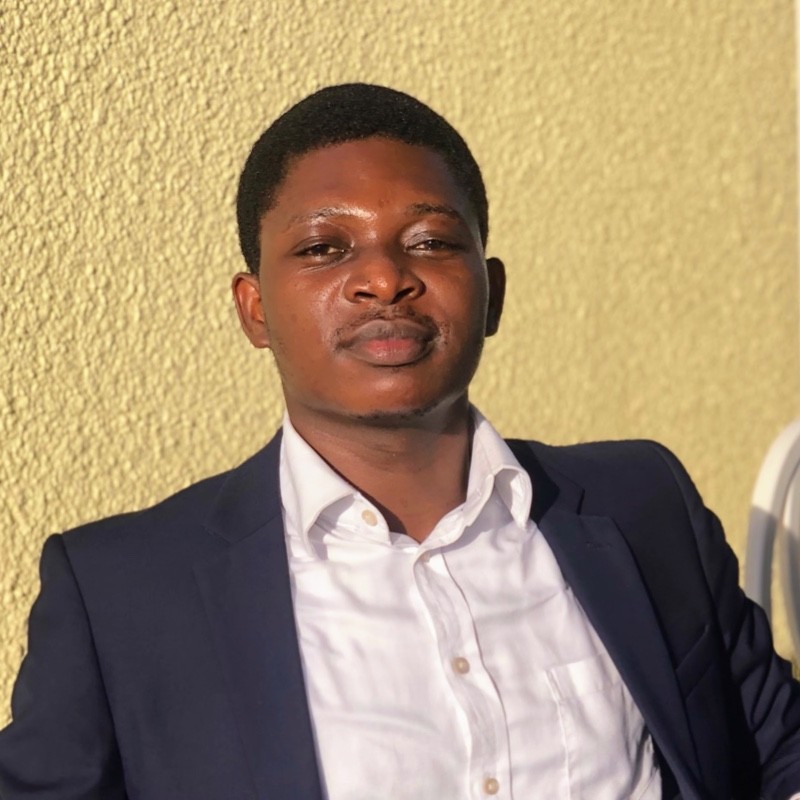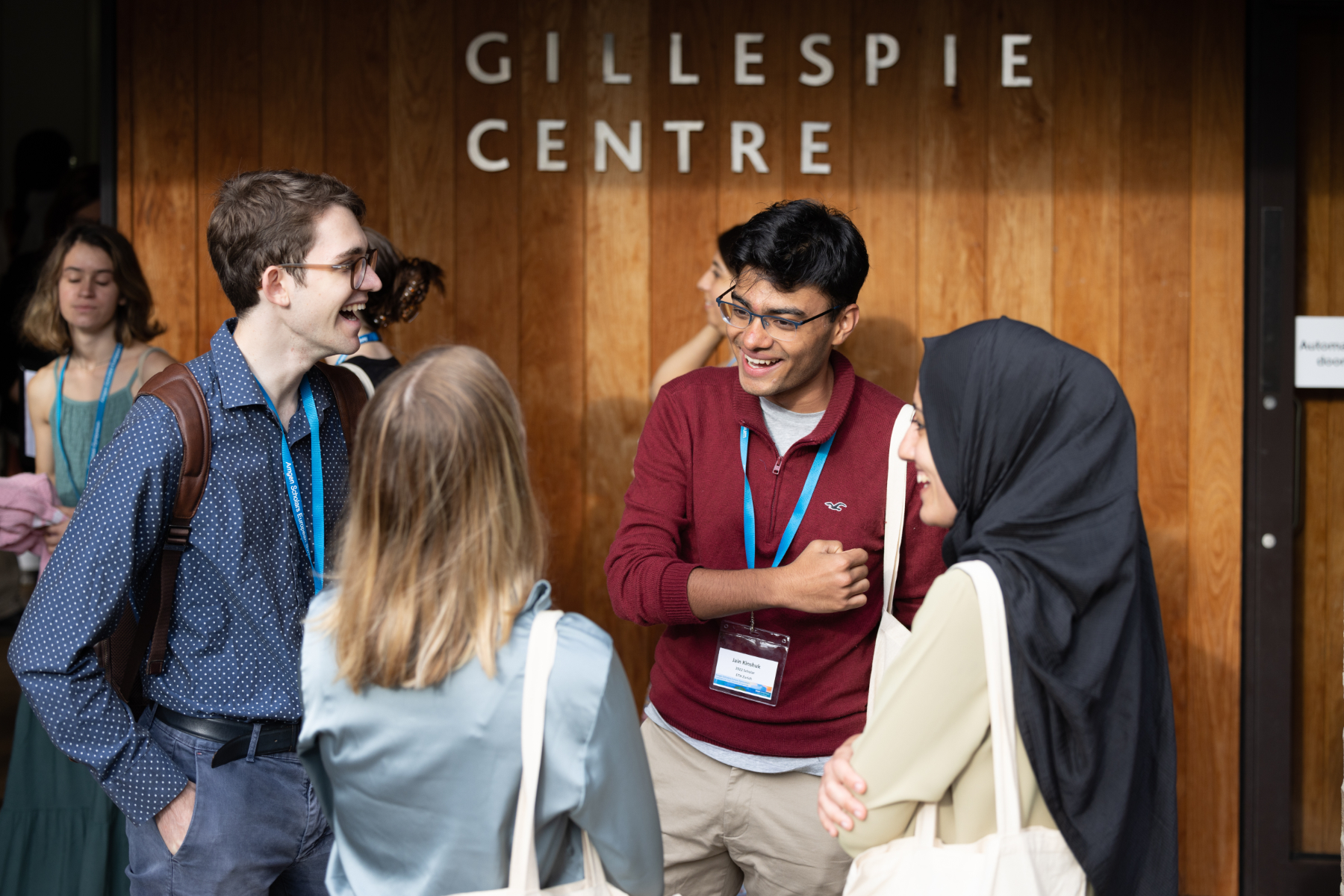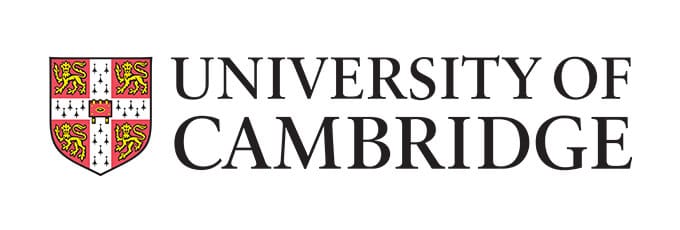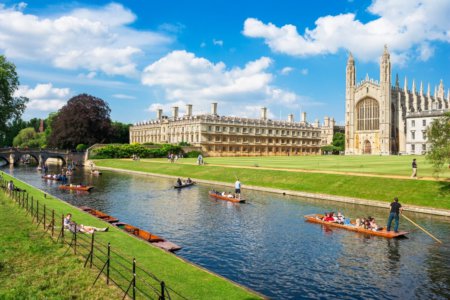In October, the University of Cambridge welcomed its first cohort of students joining the MPhil in Biological Sciences. Launched in 2022, the programme runs six parallel “Pathways,” each focused on an area of scientific importance – Biomolecular Science, Cell Science, Crop Science, Infection Biology and Molecular Immunology, Developmental Biology and Reproduction and Embryogenesis. This course combines interactive seminar-style teaching with professional skills training and the opportunity to conduct substantive laboratory based scientific research in one of the world’s leading research universities.
For the first two weeks, the inaugural group of 67 Biological Sciences MPhil scholars attended induction sessions and social events. They met and connected with course directors, leading faculty members and of course each other. They attended talks led by principal investigators exploring research possibilities found nowhere else in the world. They explored their new city and mapped out the university’s confederation of Departments and Colleges. The schedule is demanding and packed with rich learning experiences, a challenge that the newly admitted scholars have embraced.
They understand that pursuing an MPhil in Biological Sciences at Cambridge offers not only significant advancements in their careers but also enriches their lives, marking the beginning of an extraordinary journey.
From Accra to Cambridge
MPhil student Bright Fiakeye’s venture into the world of plant sciences began with a simple yet profound curiosity about tomatoes, a key ingredient in Ghanaian cuisine. As a child growing up in West Africa, he was intrigued by the fluctuating cost of tomatoes and inspired to consider whether genetic modification could extend the freshness of tomatoes, ensuring their availability throughout the year?

Bright Fiakeye, MPhil in Biological Sciences student at the University of Cambridge. Source: Bright Fiakeye/Linkedin
However, as Fiakeye delved deeper, he realised that the dynamics of tomato pricing were influenced by a complex array of factors beyond simple genetics. Yet, this initial spark of curiosity ignited a lifelong passion for plant sciences. Determined to pursue his dreams, he spent two and a half years juggling roles as a security guard and waiter, diligently saving for his higher education. His perseverance paid off, leading him to earn a bachelor’s degree in Crop Science, with a focus on Genetics and Plant Breeding, from the University of Ghana.
Following graduation, Fiakeye continued to contribute to the university. He organised laboratory sessions and nurtured seedlings in the greenhouse, gaining valuable practical experience. Throughout this time, he nurtured a deep-seated ambition: to engage in cutting-edge research at the highest global level. This ambition led him to the prestigious MPhil programme in Biological Sciences at Cambridge, a significant milestone in his already remarkable journey.
When Fiakeye came across the MPhil, it stood out to him. The programme has six pathways, including Crop Science where his interest lies. When applying, Fiakeye prepared himself mentally for a long, complex admission process. To his surprise, he found both the programme’s application and funding options clear and intuitively laid out for a seamless experience. The application form included a link to the Mastercard Foundation Scholarship Programme, which Fiakeye pursued. During his interview, the questions delved into his innate curiosity, personal circumstances, and his ability to handle the demanding coursework. Fiakeye believed that his responses effectively conveyed a more comprehensive profile of who he is as a person and a scholar. Following the interview, he awaited their decision.
To his delight, the news was good. “I was very happy when I got admitted,” he says, with a broad smile. “This is becoming real.” His dream was now turning into a tangible reality.
Not long after, Fiakeye got another email with even more incredible news: he had been awarded a Mastercard Foundation scholarship. This scholarship is dedicated to supporting promising students from under-represented African communities, enabling them to pursue master’s degrees, develop leadership skills, and contribute to climate resilience and sustainable development in Africa. The assistance from the programme began well before Fiakeye’s arrival in Cambridge, covering costly essentials like visa application fees and plane tickets, and providing leadership training. The scholarship extends beyond graduation, including three-to-six-month placements with leading organisations in Africa. Fiakeye remarks on the programme’s relevance, saying, “The scholarship is really tailored to Africans and our conditions. It’s very well-thought-out.”
Unique courses, interactive learning
The programme commences with an intensive 60-hour module of hands-on teaching. Each week, a different specialist imparts their knowledge, actively engaging the scholars. For instance, a microscopy expert might involve the students in hands-on experience with state of the art instruments. This approach contrasts with undergraduate teaching, which often focuses on factual knowledge. Here, the emphasis is on fostering critical thinking, conceptual understanding, and, above all, independence.
As a participant in the Crop Science pathway, Fiakeye is immersed in a diverse range of classes, each offering a unique learning experience. When asked about his favourite class, he finds it hard to choose, making a point to highlight that “they’re all unique. But what I really appreciate is their interactive nature.” This experiential approach is a result of the University’s egalitarian ethos, an approach that Fiakeye finds extremely beneficial.
This environment marks a departure from his previous experiences. Back home, the idea of approaching lecturers was daunting. At Cambridge, Fiakeye feels empowered to talk openly with faculty staff without fear of rebuke. This freedom allows him to focus entirely on deepening his understanding of the coursework. “It’s beautiful,” he observes. “It brings out the best in people and boosts your confidence.”

Students work closely with faculty members, Pathway cohort and research project team. Source: University of Cambridge
The support he receives from his peers is equally valuable. Senior students offer practical advice, from where to find free bike repair services to locating bus stops. His Crop Science cohort, comprising 15 students, is evenly split between male and female and includes individuals from Japan, Ghana, Nigeria, the US, and the UK, among other countries. The broader campus community is equally diverse. Fiakeye reflects, “I see so many people of different colours and backgrounds. This diversity reassures me and dispels any doubts I might have about belonging here.”
Exposure to research
The lab research component of the MPhil is substantive. In most Masters and MPhil research courses, students must contact and interact with principal investigators before they apply to a specific lab or research group. Having to do this as new students, and without guidance, is difficult and makes informed decisions more challenging.
Cambridge’s MPhil in Biological Sciences by Advanced Study circumvents this by connecting students with research group leaders within weeks of starting the programme. For example, the Developmental Biology cohort attended talks by world-leading researchers such as Bénédicte Sanson, Ben Steventon, Srinjan Basu, Matthias Landgraf, Daniel St Johnston, Renske Vroomans and Clare Baker. They introduced students to their work, respective labs and ongoing projects. These were followed by meetings with individual lead researchers. Each scholar was asked to list the top three labs they’d like to join. With many projects across a wide spectrum of interests, most students join their top choice lab.
Fiakeye is actively engaged in an ambitious project as part of his studies. His research aims to identify crucial genes in various wheat strains that are resilient to climate changes or disease resistant. While he anticipates challenges ahead, he is enthusiastic about collaborating within a diverse community of students and staff from other programmes.

Dr. Mekayla Storer (second from right) is a Principal Investigator at the Wellcome-MRC Cambridge Stem Cell Institute and instructor for some modules in the MPhil programme. Source: University of Cambridge
This ethos of diversity extends to the laboratory environment as well. The University places a strong emphasis on inclusivity in its recruitment process. Dr. Mekayla Storer, a Principal Investigator at the Wellcome-MRC Cambridge Stem Cell Institute and instructor for some modules in the MPhil programme, comments on the value of this approach: “Studies have shown that we’re more efficient in diverse teams. Incorporating a range of perspectives is critical for fostering innovative thinking, which is essential to propel science forward.”
Transferable skills, versatile graduates
Another key component of the MPhil is professional skills training. Recognising the world’s rapid digitalisation, the MPhil spends a significant time training students to analyse large collections of biological data, understand how researchers collect data and read scientific papers. A basic understanding of coding is a must-have in science today, with many uses outside the discipline as well. MPhil students also learn about research integrity, research data management, data visualisation, literature and reference management, writing and communications for non-scientific audiences, poster preparation, PhD application, and more.
In May, all students present their posters in a conference-like event and get specific feedback from two principal investigators. “A lot of group leaders come just to give students the support and the opportunity to present to other scientists as well,” says Storer. “Any criticism is constructive. It’s a very friendly environment.” Doing this adds clarity and focus to all they’ve done, readying them for the dedicated six-week period to write up their research project.
Perhaps what’s more profound about these sessions is how they’re joined by students from all pathways. There’s always someone to bounce ideas, share problems and get advice from. As the MPhil is a challenging programme, students develop a strong sense of camaraderie having experienced and succeeded as a group.
Fiakeye’s advice to those interested in the School of Biological Sciences MPhil? “Seize the opportunities.” “Whatever opportunity they get to improve themselves, take it.”
In his message to aspiring students from low- and middle-income countries, Fiakeye encourages a shift in perspective. He urges them to dispel the notion that only “perfect” candidates gain admission. “Although they may face resource limitations, it’s important to view this as a strength,” he advises. “Their journey of working harder to excel in their field is a powerful narrative. This is the story they should proudly share.”













